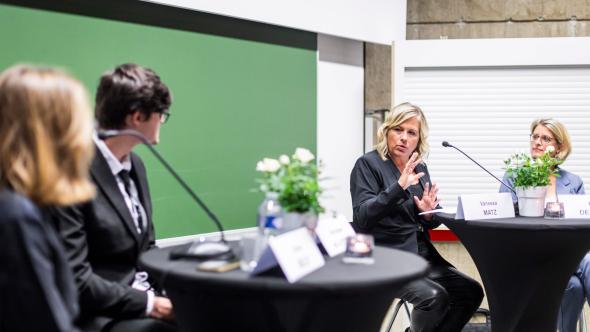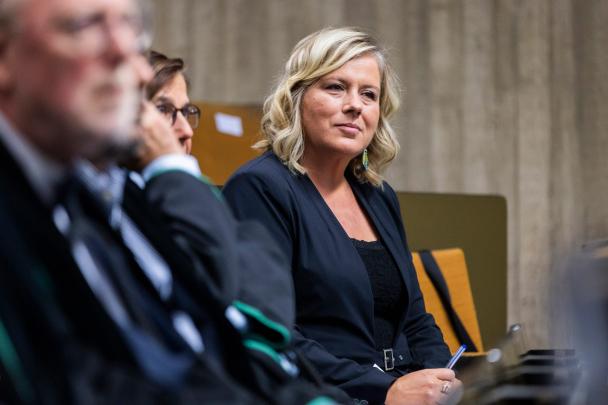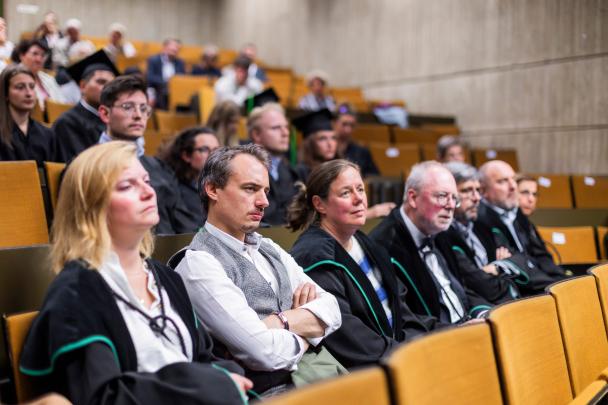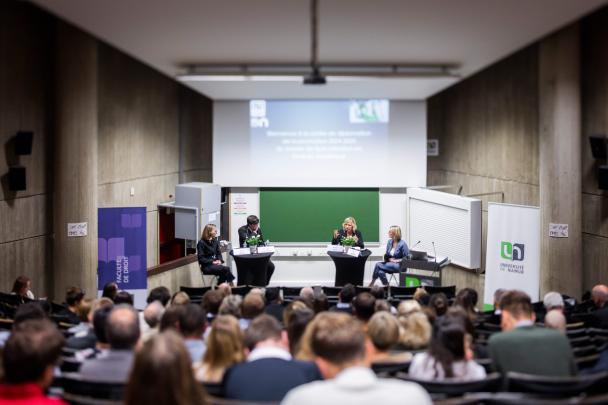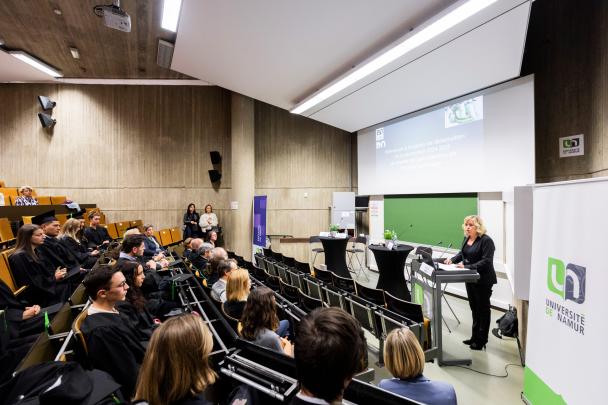It's in the nature of law to work in the long term. But when the very object of that law is inherently shifting and constantly evolving, it's sometimes hard to keep up.
"Technology is evolving very rapidly, and that's why all the courses taught during this Specialized Master's Degree in Digital Law are linked to the research we carry out here at CRIDS (see box), clarifies Élise Degrave, Professor of Law and Director of the Master's Degree. All the professors give courses linked to their research themes, and these evolve according to the results we obtain and share with the students."
Lasting one year, and accessible to holders of a first Master's degree by application, this specialist Master's program covers a wide range of subjects: commerce, communications, privacy, intellectual property, international governance, information, artificial intelligence...
"The Master's program is dense, with a very up-to-date range of courses, which really gives us a 360° vision of our future professions, believes Emma Belot, a recent graduate who has already been hired by a law firm. It shows as soon as we enter the world of work, and particularly in the technical field. You can't call yourself a specialist in new technology law without understanding the technology you're talking about. And the latter accounts for a large part of our training, in conjunction with the Faculty of Computer Science."
In addition to theoretical courses, students can also count on a pedagogy whose innovative character was emphasized by Rectrice Annick Castiaux. "In addition to the work-immersion internship, students take part in the Namur Legal Lab, which provides legal advice to start-ups, as well as a seminar that trains them in teamwork, she declared.
